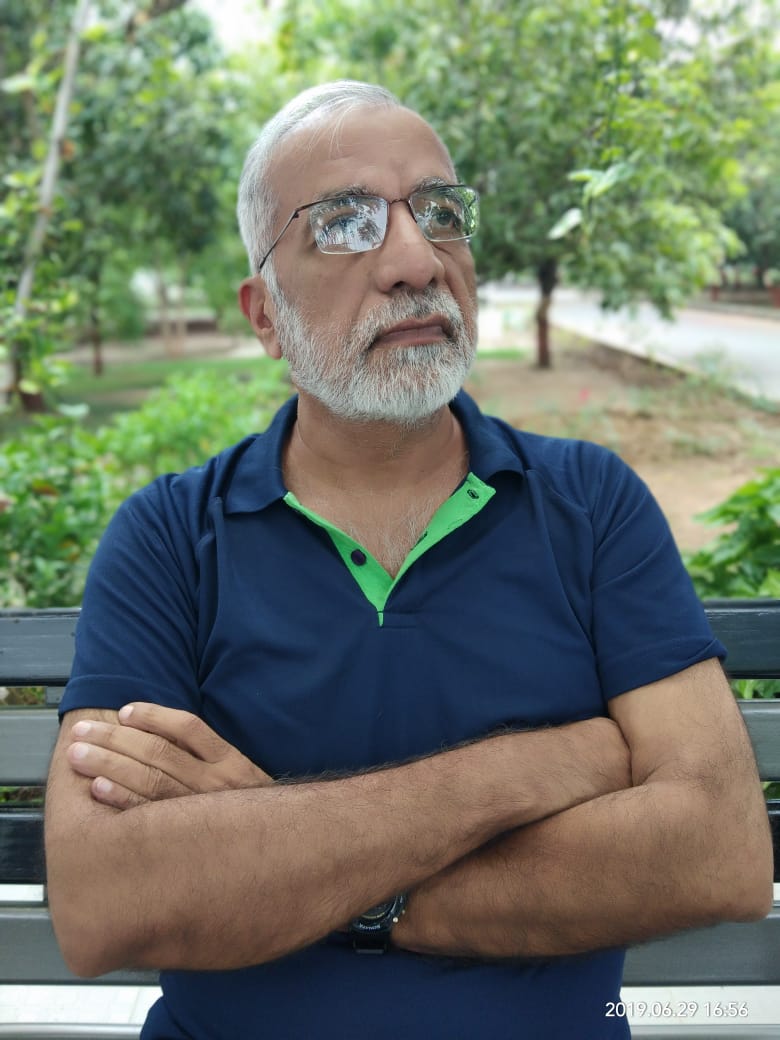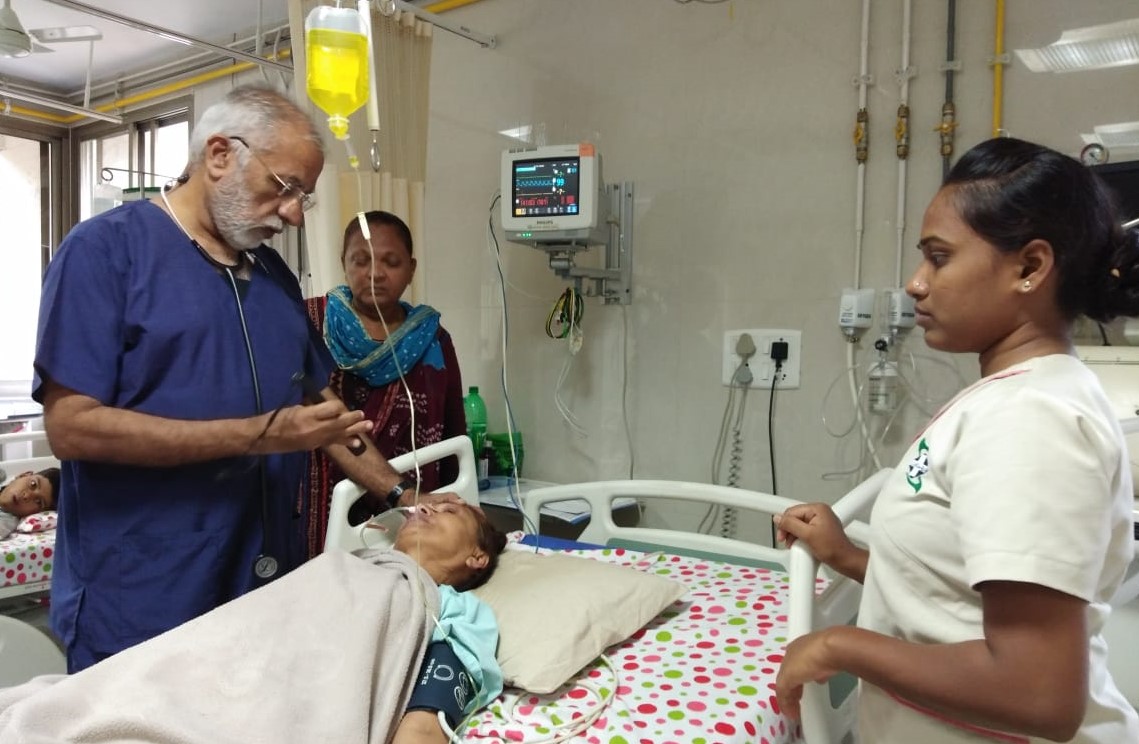Dr. Bharat Champaneria is a leading healthcare practitioner; and Trustee of Indrashil Kaka-Ba and Kala Budh Public Charitable Trust, established by Cadila Pharmaceuticals Limited. In this article, Dr Champaneria shares Kaka-Ba healthcare initiatives in Hansot, a small village in South Gujarat, where his Trust runs a hospital since 1985. The hospital has also initiated project SAAHAS (Strengthening Access and Awareness of Health in Hansot) with aim to building resilient health system to safeguard child and adolescent Health.
Resilient health systems are critical to safeguarding our populations, with or without the presence of threats such as Covid-19. In India, the practice of public health has been dynamic and robust in the face of challenges. During the pandemic, despite delays and disruptions, health systems were quick to adapt and confront emerging threats. Strong health care systems at grassroots’ levels are especially pivotal to ensuring that essential health services are not impacted by emergencies.

In Hansot, a block 54 km from Surat, in Gujarat’s Bharuch district, Indrashil Kaka-Ba and Kala Budh Public Charitable Trust has been working to safeguard community health. The Trust, a philanthropic initiative by Cadila Pharmaceuticals, recognized that despite the existence of strong policies and programmes to safeguard community health care, unequal implementation has meant that these have remained underutilized.
During the Covid-19 pandemic, the Trust was instrumental in providing free or low-cost treatment to the community, and even set up an adjacent oxygen plant in the block. Although health systems made significant strides in developing systems and solutions to mitigate the impact of the virus, the most vulnerable groups, in remote or tribal areas, received low or no access to health care. Kaka-Ba Hospital has been serving the tribal populations of Hansot for over thirty years. During the pandemic, however, the Trust felt a strong need to institutionalize the changes being made on the ground.
Despite an estimated 65% of Covid-19 cases in the second wave emerging in rural areas, testing sites were concentrated in cities. School closures in rural regions across the country have affected not only children’s education but also essential programs, such as the Mid-Day Meals (MDM), now PM Poshan. Services provided by the Integrated Child Development Services (ICDS), under the Ministry of Women and Child Development (WCD) are also available to people. In Gujarat, at least eight state government schemes related to children’s nutrition and health were either suspended or saw no expenditure due to closure of schools and Anganwadi centres (AWCs).
To ensure the health and safety of beneficiaries, ICDS and WCD, designed, developed, and implemented ‘Umbre Anganwadi’, or Anganwadi at Doorstep, a program that used digital platforms to ensure home delivery of services.
Kaka-Ba Hospital has been instrumental in strengthening existing government programs by providing supportive supervision, facilitating capacity building, and addressing bottlenecks in health care delivery in the block. Children referred for specialized treatment under the Rashtriya Bal Swasthya Karyakram (RBSK) are often referred here for treatment and Kaka-Ba has been providing both surgical and medical care for all. By also strengthening community-level communications, the Trust has taken key steps to mitigate stigma and misinformation and encourage better health seeking behaviour.
Indicators such as anaemia and malnutrition, were significantly impacted by the pandemic. As per the fifth National Family Health Survey (NFHS-5), 2019-20, the national incidence of anaemia increased by nearly 10 percentage points, going from 58% in 2015-16 to 67% today. In Gujarat, the jump was even sharper, with numbers going from 62% in 2015-16, to nearly 80% in 2019-20. While rates of stunting and wasting have reduced marginally at the national level, they have remained similar or increased marginally in Gujarat.
Along with nutrition, health screenings for children enrolled at schools and AWCs came to a grinding halt during the pandemic. Under the state’s Kuposhan Mukt Gujarat Mahabhiyan, the number of children screened by field workers dropped from 40 lakh in 2019-20 to 32 lakh in 2020-21 (till December 2020). No children were screened under the School Health Programme, till October 2021, due to school closures.
While schools reopened briefly in November 2021, closures due to the Omicron outbreak have once again threatened the successful implementation of school health programmes. This means that children across the country remain at risk of acute malnutrition as well as chronic disorders such as health disease. Without these programmes, various disorders remain undiagnosed and untreated, leading to potential life-long disability or even fatalities.
Today, due to spread of the third wave of the pandemic, programs and systems continue to be impacted, jeopardizing the health and wellbeing of thousands of children and adolescents in Hansot who are faced with health challenges and nutritional deficiencies.
Kaka-Ba Hospital has been working, along with its partners, to support the government in reactivating health screenings in schools and Anganwadi Centres (AWCs) in the region. Hansot has now become the first block to resume screenings at Anganwadi Centres and schools, and treatment is being facilitated for cases of Severe and Moderate Acute Malnutrition (SAM/MAM), congenital heart disease (CHD), epilepsy, tuberculosis (TB), leprosy and diverse other health disorders.
Under project SAAHAS (Strengthening Access and Awareness of Health in Hansot) existing schemes and programmes are being leveraged to ensure regular last-mile delivery of health and nutrition services. By identifying and address gaps, and taking concrete steps to address them, the project has ensured that no child is left behind in the block. The need of the hour is collaborative action of all partners to support the government in the delivery of public health care.









.jpg)










